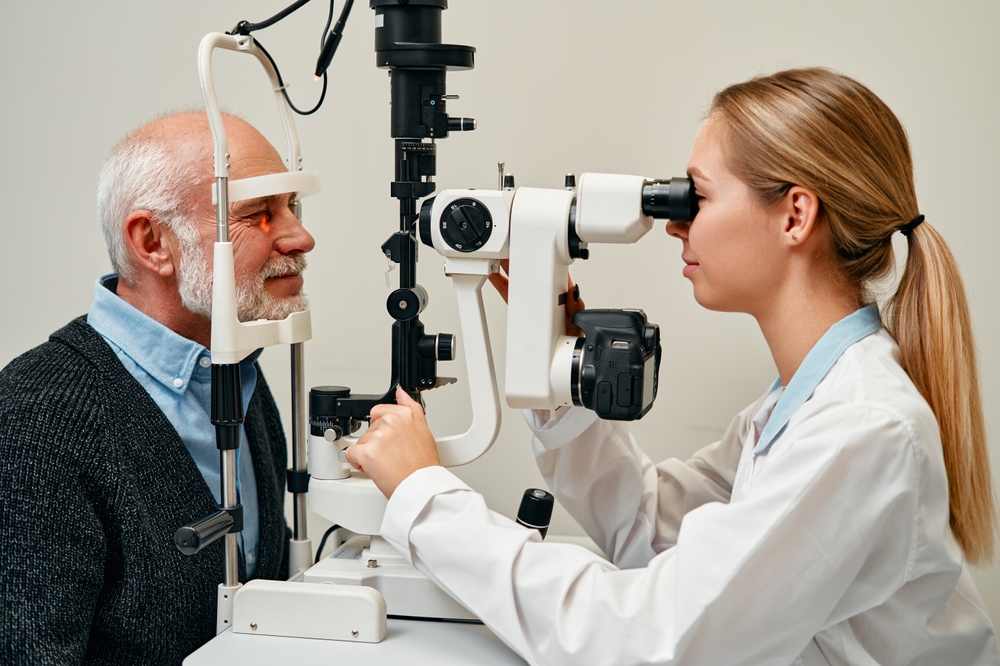It's Time to Make Your Eyes a Priority if You Haven't Already
July 17, 2024
Do you have clear vision? Have you never needed glasses or contact lenses to see clearly?
If you've never needed visual aids, you've probably needed to worry about your eyes and their health. Taking clear vision and good, healthy eyes for granted is easy.
However, many serious eye conditions can develop without any signs or symptoms. You may only realize something is wrong once your vision starts to change. However, once these vision changes occur, it may be too late to reverse them.
You can take control of your eyes and keep them healthy by seeing an ophthalmologist or optometrist at Metropolitan Ophthalmology Associates for a comprehensive eye exam. In addition to checking your vision, a comprehensive eye exam is a medical exam to assess the overall health of your eyes.
Your ophthalmologist or optometrist can screen you for eye conditions like glaucoma and macular degeneration so you can start any necessary treatment to prevent vision loss. Keep reading to find out why it's time to make your eyes a priority if you haven't already.
When To Start Getting Comprehensive Eye Exams
The American Academy of Ophthalmology (AAO) suggests that adults who don't have existing vision problems should have one complete exam by an ophthalmologist in their 20s and twice in their 30s. Once you turn 40, schedule a comprehensive eye exam and consider having eye exams yearly.
For many people, regular age-related vision changes start around the age of 40. Your ophthalmologist or optometrist can check your visual acuity and prescribe glasses or contacts as needed.
In addition, your risk of developing age-related eye conditions like glaucoma, macular degeneration, and cataracts increases after turning 40. Early detection, prompt treatment, and ongoing monitoring can help you prevent vision loss later in life.
Do You Need an Eye Exam?
What Happens During an Eye Exam?
Eye exams usually take about an hour. All tests conducted are non-invasive and painless.
Unlike other health screenings, there are no diet restrictions or preparations to take before seeing an ophthalmologist or optometrist. During your eye exam, your ophthalmologist or optometrist will perform several tests:
Vision
Your ophthalmologist or optometrist will ask you to cover one eye at a time and read a letter chart. This visual acuity test can indicate whether you need glasses or contacts to improve your vision.
Your ophthalmologist or optometrist at Metropolitan Ophthalmology Associates will also have you look in different directions to test your muscles and check your peripheral vision.
Refraction
If you need corrective lenses, your ophthalmologist or optometrist will perform a test called refraction. This process involves looking through different powers of lenses to see which strength gives you the clearest vision. Refraction determines your prescription for glasses or contacts.
Dilated Eye Exam
A dilated eye exam allows your ophthalmologist or optometrist to check how healthy your eyes are. It starts with special drops to dilate your pupils.
Once they're fully dilated, you'll sit in front of several machines that allow your ophthalmologist or optometrist to look at the different parts of your eye. Your ophthalmologist or optometrist will look for changes to the eye that might indicate glaucoma, cataracts, macular degeneration, or diabetic retinopathy.
Signs You Should See an Ophthalmologist or Optometrist
If you have noticed changes to your eyes or vision, you should see an ophthalmologist or optometrist sooner than later. Some changes to your vision are normal, but others may indicate a serious health concern.
Vision Changes
Signs that your vision has changed include:
- Squinting to see objects at a distance
- Needing to hold printed materials at arm's length to read
- Difficulty finding the proper distance to see your computer screen
- Needing to increase font sizes to read on the computer, phone, or tablet
- Headaches
- Eye strain
These symptoms may indicate that you need glasses or contacts.
Difficulty Seeing at Night
Reduced night vision is common, particularly as you get older. It may also be an early symptom of eye conditions, including cataracts or macular degeneration. If you are concerned about difficulty seeing in low light, you should visit your ophthalmologist or optometrist.
Frequent Headaches
Frequent headaches may be due to eye strain. Glasses or contacts could be the solution to frequent headaches.
Binocular vision issues, such as amblyopia or convergence insufficiency, can cause headaches. A prescription for special glasses can help correct these vision problems.
Headaches also indicate more serious eye conditions, such as glaucoma or infection.
Eye Pain or Other Symptoms
New or worsening eye pain or unusual symptoms in your eyes should be a cause for concern. Call your ophthalmologist or optometrist right away if you have symptoms such as:
- Draining, crusting, or redness in one or both eyes
- Double vision
- Floaters (spots or lines floating in your vision)
- New or worsening light sensitivity
- New or worsening circles or halos around lights
- Flashes of light
- Pain or new, unexplained symptoms could indicate an injury or underlying eye disease.
Treatment is essential to protect your eyes from vision loss. The ophthalmologists or optometrists and Metropolitan Ophthalmology offer eye exams to check for vision issues as well as:
- Cataracts
- Diabetic retinopathy
- Dry eye
- Glaucoma
- Presbyopia
- Pterygium
- Refractive errors
- Retinal diseases
Do you need a comprehensive eye exam? Schedule yours today at Metropolitan Ophthalmology Associates in McLean, VA, and Chevy Chase, MD! The best time to make your eyes a priority is right now, so why wait any longer?



